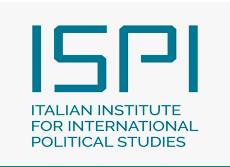Tempo de leitura: 3 minutos
Por Bruno Casella
Tax incentives, including those targeting corporate income tax, have traditionally been a key feature of the benefit package that special economic zones (SEZs) offer international investors. In its 2019 World Investment Report, Unctad estimated that 80% of SEZ laws provided fiscal incentives such as tax holidays for a defined period (often five to 10 years) or the application of a reduced tax rate.
However, international tax standards are undergoing their most significant reform for 100 years. The last thing investment policy-makers, including SEZ authorities and managers, should do is bury their heads in the sand (or wait for finance ministries to sort out all the issues). Among today’s key reforms is the introduction of a global minimum tax, set at 15%, to be applied to the profits of certain multinational enterprises earning more than €750m annually.
A gamechanger for SEZs
The implications for multinational investment and investment policymakers and institutions, including SEZs, are major. The reduction of tax rate differentials between host countries will significantly change the way multinational enterprises invest internationally because it makes tax a much less important driver of their location decisions. This is a major change for the activity of organisations that deal with FDI attraction, such as SEZs and investment promotion agencies.
Notably, in its current formulation, it will be difficult for almost any country or FDI project to escape the application of the global minimum tax. The mechanism has been designed in such a way that it is sufficient for a relatively limited number of investor home countries (for example, G20 or OECD members) to apply a top-up tax for the effects to become almost universal. This means in practice that, subject to the size criterion, any investment from a country implementing the reform will be subject to the minimum tax. This includes investments in SEZs in countries that have not even signed the global agreement, let alone taken steps towards implementation. What’s more, according to the OECD more than 50 countries are already taking steps towards implementation of the reform.
An opportunity for reform
Against this backdrop, SEZs are urged to get ready now, to be able to meet the profound challenges posed by the reform’s imminent implementation. A successful response by SEZs should include four steps: build knowledge and awareness (engage); assess and analyse the likely impact; redesign tax incentives; explore and reshape alternative (non-tax) measures and value propositions.
Yet we should not lose sight of the big picture. International tax reform is not SEZs’ only challenge, and long term, probably not the most critical. It adds to challenges posed by ongoing structural trends including sustainable development, the fourth industrial revolution and changes in patterns of international production.
From a broader strategic perspective, international tax reforms may represent an opportunity for SEZs to reshape their value proposition wholesale, acting as an accelerator of the process of transformation from the traditional model of SEZ to a modern one, better equipped to address the challenges and leverage the opportunities of ongoing changes. In recent years, even before the major developments in the global tax reform leading to the Pillar agreement, Untad has repeatedly urged SEZs to engage in such a transition.
Bruno Casella is chief of the intellectual property unit at Unctad.
Fonte: FDI Intelligence | Foto: Divulgação







Os comentários foram encerrados, mas trackbacks e pingbacks estão abertos.